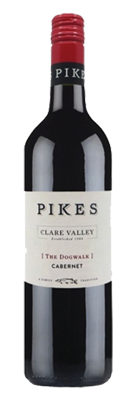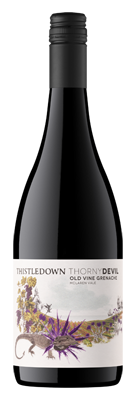Filter by
- Thoroughly satisfying, pear-scented 'smooth-ride' favourite Pinot Grigio by John Quarisa.$19.00 RRPfrom $12.99 when you mix 12+
- 93pt Mountadam magic from the estste's elevated Eden Valley vineyards.$28.00 RRPfrom $19.99 when you mix 12+
- 91pt, Great Value Langhorne Creek Cab Merlot combo “Remarkable quality at this price” (Halliday).$20.00 RRPfrom $16.99 when you mix 12+
- Packed with passionfruit freshness, Split Rock is a top-selling Kiwi Sauvignon for good reason$23.00 RRPfrom $19.99 when you mix 12+
- Bright, lemon fresh, creamy edged and Gold-winning once again.$30.00 RRPfrom $21.99 when you mix 12+
- Velvety-smooth Gold-medal Portuguese Black Red from Gold-medal maestro Jaime Quendera.$28.00 RRPfrom $19.99 when you mix 12+
- Freshly landed, seductive, textural Pinot Grigio from Hunter born-and-bred Aaron Mercer.$26.00 RRPfrom $21.99 when you mix 12+
- Enjoy characterful Sicilian Vermentino – an intensely citrusy, apple and pear, floral white.$25.00 RRPfrom $17.99 when you mix 12+
- A beautifully crafted classic Hunter Semillon from a master of the art!$25.00 RRPfrom $21.99 when you mix 12+
- $28.00 RRPfrom $21.99 when you mix 12+
- A delicious exclusive epitomising the value and quality offered by Langhorne Creek and Lake Breeze.$25.00 RRPfrom $17.99 when you mix 12+
- Elegant, bright Chardonnay from prized Barossa vineyards.$25.00 RRPfrom $15.99 when you mix 12+
- 93pt Clare Cab: "Easy drinking, charming, fresh-feeling... cracking drink for the bucks" (Halliday).$26.00 RRPfrom $23.99 when you mix 12+
- A refreshing, crowd-pleasing, light South Australian Moscato, great for lunchtime sipping.$16.00 RRPfrom $12.99 when you mix 12+
- “Stylish and complex" 94pt Yarra Valley Pinot Noir "higly enjoyable" (Wine Orbit).$28.00 RRPfrom $28.00 when you mix 12+
- Mighy red from an iconic band: lron Maiden's Darkest Red boasts flavour to the MAX!$35.00 RRPfrom $24.99 when you mix 12+
- “Highly expressive statement of Margaret River Cabernet. 91pts”. (Ray Jordan) from Nannup Ridge.$25.00 RRPfrom $23.99 when you mix 12+
- Wine without compromise from grape to glass, a Sicilian white brimful of bright, peachy fruit.$32.00 RRPfrom $23.99 when you mix 12+
- Astonishingly pure, concentrated, 4 Gold and Platinum-winning Barossa Shiraz$40.00 RRP$28.99 when you mix 12+
- One of the Clare Valley's most iconic Rieslings with multiple scores of 93-95pts!$28.00 RRPfrom $23.99 when you mix 12+
- Pretty "long and layered" 93pt old vine Grenache from specialists of the grape!$36.00 RRPfrom $34.50 when you mix 12+
- Adelaide Hills Picpoul from an ‘idyllic vintage refreshing & pure with a raft of scores 91-95pts.$26.00 RRPfrom $22.99 when you mix 12+
- A long-time favourite Cabernet, this year using fruit from Langhorne Creek & Coonawarra.$22.00 RRPfrom $14.99 when you mix 12+
- Definitive Aussie white offering refreshing fruit, effortless enjoyment and a great price.$18.00 RRPfrom $11.99 when you mix 12+
Wine FAQs
What is vegetarian wine?
Although wine is made from fermented grapes, it isn’t always vegetarian-friendly. Although grapes are the main ingredient in wine, animal-based products are often used during the winemaking process to clarify and stabilise the wine, before it is bottled. However, there are alternative products that can be used for this, allowing for the production of vegetarian-friendly wines.
Why is wine not vegetarian?
Wine isn’t always vegetarian, and that’s down to the ‘fining’ process. This clarifies wine to remove any impurities or suspended solids that can impact its clarity and stability. Winemakers typically use animal-derived products to do this, and that can make a wine not strictly a vegetarian drink.
The substances don’t remain in the wine – they are removed along with the particles they help to clear out. Depending on the type of fining agent use, the resulting wine may not be suitable for vegetarians.
Traditional fining agents can include:
Gelatin – derived from animal bones and connective tissues
Isinglass – made from fish bladders
Egg whites (Albumin) – used particularly in red wines
Casein – a protein derived from milk.
If either of the first two are used, the wine is not vegetarian.
If any of the above are used, the wine is not vegan.
What’s the difference between vegan and vegetarian wines?
Rather than traditional fining agents such as gelatin and isinglass, vegan wines are made using alternative agents.
These can include:
Activated charcoal
Silica gel (a form of silicon dioxide)
Pea protein
Bentonite (a type of clay with strong absorptive properties)
While a vegetarian diet involves eating plant-based foods and avoiding meat and fish products, some vegetarians eat eggs and milk. Wine can be included in a vegetarian diet as long as the fining agents used are also suitable for vegetarians.
As fining agents aren’t classified as ingredients and, therefore, are not listed on a wine’s label, you may wish to choose a wine labelled as vegan to be sure of its suitability.
How do you know if a wine is vegetarian?
Look for a wine labelled as vegetarian or bearing a vegetarian symbol or logo. Occasionally, wineries may even specify the fining agents they’ve used in their winemaking process online.
On our website, you can check the information section of the wine description to see if a wine is vegetarian.
Or you can simply browse the wines on this page.
Do vegetarian wines taste better?
How a wine tastes is influenced by many factors, principally the grape variety used, the soil and climate in which grapes are grown, winemaking techniques and how the wine is aged.
The same is true of vegetarian red wine and white wine.
Traditional animal-derived fining agents and their vegetarian alternatives are used to clarify and stabilise wine – not to impart flavour. They are used in small amounts and are removed from the wine along with the impurities they clarify.
Consequently, the choice of fining agent usually has a minimal impact on the taste of the wine.
Some winemakers choose not to fine or filter their wines at all. These wines might present different flavours compared to conventionally produced wines, but this is related to the overall winemaking philosophy and methods, not specifically whether the wine is vegetarian.
Is vegetarian wine popular in Australia?
Vegetarian wine is becoming more popular in Australia as consumers become more aware of the impact their choices have on their health and the environment. This has led to a rise in demand for vegetarian products, including wine. Some people prefer vegetarian wine due to ethical concerns about the use of animal-derived products in the winemaking process.
Australia’s thriving wine industry has recognised and supported this trend by producing more wines using vegetarian-friendly methods.
How can I pair vegetarian wine with food?
No vegetarian dish would be complete without a delicious vegetarian wine to pair with it.
Pairing vegetarian wines with food follows the same rules as traditional food and wine pairings. Your focus should be on matching the wine’s characteristics with the flavours and textures of the dish. For example, a crisp, zesty Sauvignon Blanc pairs wonderfully with a fresh, crunchy green salad or a tangy goat cheese tart.
A full-bodied Cabernet Sauvignon with robust tannins and dark fruit notes would work well with a rich, hearty dish like mushroom and lentil stew or vegetable lasagne. The wine provides a delicious balance to the earthiness of these dishes.
Finish off your feast with a glass of late-harvest Riesling paired with a slice of apple strudel – the bright acidity and delicate floral notes of a Riesling would beautifully balance the richness of the dessert. Alternatively, try an Aussie Sparkling wine such as The Black Pig Sparkling White or Howard Vineyard Sparkling Pinot Noir Chardonnay with a tropical fruit Pavlova. The effervescence and vibrant fruit flavours can cut through the sweetness of the meringue and fresh fruit.



























